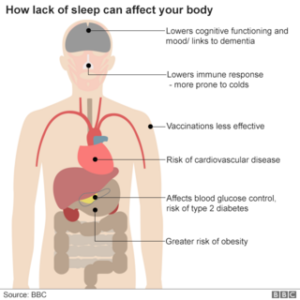BMA takes ‘neutral position’ on gender review
The doctors’ union had previously signalled it was critical of a review into gender identity services.

 Getty Images
Getty ImagesThe doctors’ union, the BMA, says it will take “a neutral position” on the recommendations of a landmark review into care for children and young people with gender identity issues.
The British Medical Association (BMA) had previously called for a pause in implementing its recommendations – including a move away from drugs to delay the start of puberty – and wanted a ban for under-18s to be lifted.
But around 1,000 senior doctors wrote an open letter to the BMA expressing extreme disappointment with its stance.
The Cass Review, commissioned by NHS England and published in April, also advocated better mental health support as part of gender care.
The BMA says it will “retain a neutral position on the Cass Review” recommendations after a vote by its council earlier this week.
It is carrying out its own evaluation of the review and said it would listen to the views of patients and clinicians carefully.
On the BMA’s website, BMA council chair Professor Phil Banfield said the Association’s evaluation of the Cass Review would be “evidence-led, starting from a position of neutrality”.
“I cannot predict the outcome of our evaluation,” he said.
“However, I am clear that we will hear different perspectives, always prioritising the needs of transgender children and young people, who deserve the very best care.”
The Cass review, led by leading paediatrician Dr Hilary Cass, prompted the last government to ban the use of puberty blockers for under-18s questioning their gender – a move which was then supported by Labour when they won the election.
These drugs suppress the natural production of hormones and delay the onset of puberty.
The NHS had already stopped using puberty blockers outside of clinical trials, so the ban was tightened to apply to private clinics and European prescribers.
Puberty blockers are now only used by those under-18s already taking the drugs for gender dysphoria. They can also be used in NHS clinical trials and in a few other circumstances.
But the BMA’s Council, its top decision-making body, voted in favour of a motion that was critical of the Cass Review and called on the union to “publicly critique” it.
The BMA said it was concerned about its impact on transgender healthcare provision because of its “unsubstantiated recommendations”.
And in the summer, the BMA called for a pause in implementing the review’s recommendations.
However, those behind the review defended the way it was carried out, saying it had looked at 237 papers from 18 countries – the largest and most comprehensive to date. The review also consulted widely with those with lived experience, health staff and leading experts in the field, they said.
NHS England is changing the way gender services for children and young people are organised.
Six new regional centres created to support under-18s struggling with their gender identity will open over the next two years, it has confirmed. Two clinics already exist.
NHS England said the emphasis would be on providing a more holistic approach, with a particular focus on supporting mental health and people with conditions such as autism.






